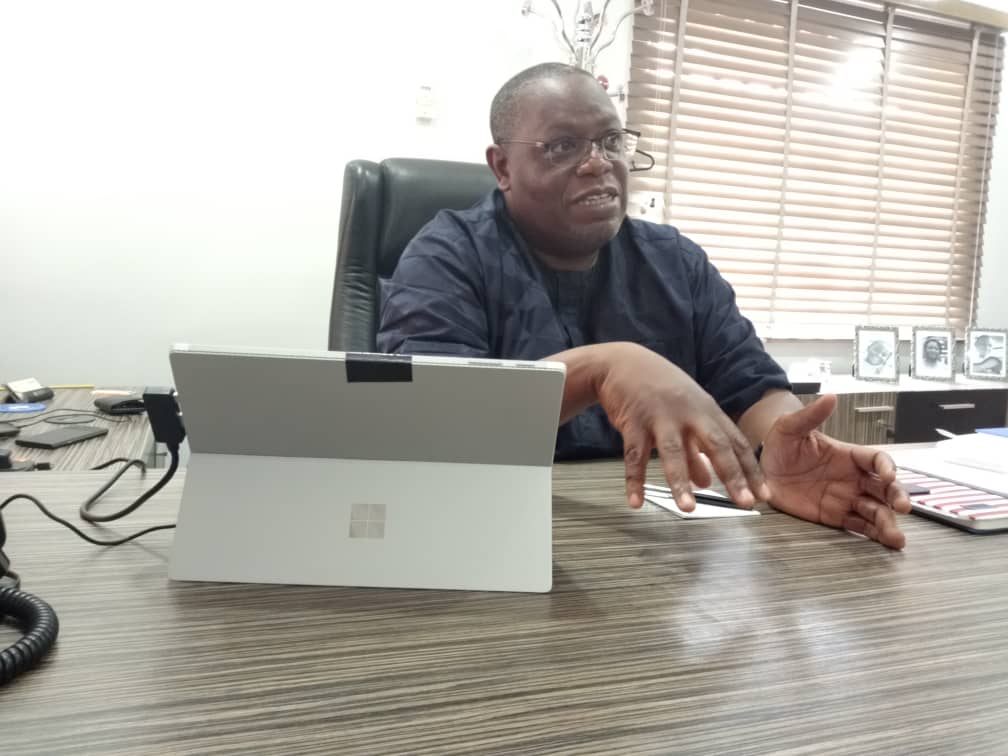Power: Recapitalisation Shouldn’t Take Away Investors’ Property Rights -Katepa

Engr. Emmanuel Katepa is the Managing Director/Chief Executive Officer (CEO), KANN Utility Company/CEC Africa Investments Limited (CECA), a Core Investor at Abuja Electricity Distribution Company (AEDC). In this Exclusive Interview with TheFact Magazine, he shares his thoughts on the business environment in Nigeria, especially with respect to the planned reorganisation and recapitalization of the power sector, after over twelve (12) years of operations in Nigeria.
Excerpts:
TheFact Magazine: How long have you been doing business in Nigeria?
Katepa: CEC Africa first entered Nigeria as a foreign company in 2011, following the power sector privatisation road shows that were conducted by the Federal Government of Nigeria through its various agencies. It incorporated a local company in Nigeria in 2013, following its success in acquiring stakes in the PHCN successor companies.
TheFact Magazine: As an investor, what is your greatest challenge doing business in Nigeria?
Katepa: Being in the power sector, there have been significant headwinds as an investor, but fundamentally, they can be brought down to a lack of liquidity in the sector. This lack of funding to the sector has at various stages been driven by different factors, but chief among them was the lack of policy consistency in the early years of post privatisation which resulted in international funders sitting by the sidelines waiting for clarity. After a couple of years, interest from the international financial community waned altogether, especially after the rapid depreciation of the local currency, the Naira, made the servicing of foreign (especially US dollar) denominated debt unsustainable. Following this collapse, the sector increasingly turned to the federal government for interventions, which while appreciated, cannot be relied on as a long-term solution.
TheFact Magazine: Do you think there is government interference in the way private sector businesses are run in Nigeria?
Katepa: The power sector, even a privatised power sector, inherently requires close collaboration between the government and the private sector investors and operators. This is due to the sensitive economic and social impact of the sector in a country. It is therefore inevitable that government and private businesses in the sector are required to interact with each other regularly. What matters in determining whether such interactions are labelled interference or coordination is the nature of the interaction. Quite clearly, there have been a lot of welcome interventions by the Federal Government in the sector, but there have also unfortunately been several interventions that may have represented overreach by agencies acting on behalf of government.
TheFact Magazine: Give us an update on your investments in AEDC. Are you satisfied with the way the company is currently being run?
Katepa: Unfortunately, the actions of some government agencies with respect to our ownership rights and operation of AEDC represent one example of overreach that we are currently going through the courts to redress. As the matter is before the courts, I am rather restricted in the details that I would be able to discuss.
TheFact Magazine: Do you think the power privatisation really achieved its objectives?
Katepa: As with all complex change processes, the answer to that is nuanced. Is the sector where we all hoped it would be at this time in the process – clearly no! We have not achieved the improvements in capacity and service quality that the Nigerian population and industry expect and deserve. However, is the financial condition and service quality better than it was at privatisation? I believe any fair-minded analyst and/or observer will give that a resounding yes! In terms of service quality, the sector has moved from several system collapses per year to going a whole year with less than 5 collapses. There are several areas, especially in the big cities, that now see several days of an uninterrupted power supply.
TheFact Magazine: How would you rate the performance of DisCos in the post-privatization era?
Katepa: Again, a very mixed picture – some distribution companies, both because of operational decisions made by the private operators and the demographics of the areas served, have drastically improved their service quality and financial positions. No distribution company can be completely on its feet though because realistically, one cannot run away from the need for liquidity – which ultimately comes from customers paying an equitable rate for the service they receive.
TheFact Magazine: Do you support the planned recapitalisation of the power sector?
Katepa: Yes – as mentioned previously, the sector’s greatest challenge is insufficient liquidity. A fresh injection of capital is required. The important thing will be to achieve the required recapitalisation whilst respecting the property rights of existing stakeholders in the sector. Any form of recapitalisation that takes away the property rights of investors without due compensation can cause strife that will take away the obvious noble intention of the exercise.
TheFact Magazine: The Minister of Power recently declared that there will be no more automatic licence renewal for power companies. Are you worried about that declaration?
Katepa: Not at all – there is nothing new in that declaration in that all licenses are awarded with conditions that bind both the license holder and the government. The rights and obligations are clear and as an investor, we have always been proud of upholding our end of the bargain, to the extent that the government has provided the conditions required to do so.
TheFact Magazine: What in your opinion should be done differently to reposition the power sector?
Katepa: Firstly, I think all stakeholders must begin to acknowledge the progress that has been made – failure to do so risks throwing out the baby with the bathwater when it is time for the necessary reforms. Secondly, the whole project of revamping the sector must involve a key stakeholder – the power consumer. Whilst the sector reforms over the past ten years focused on the supply side, the obligations of the consumer and society at large also require to be discussed. Issues of power theft and payment for electricity supplied are best tackled collaboratively. General expectations of electricity as a public good have to be tampered with a recognition that the service must be paid for and the cost cannot be borne by private sector investors. Recognising the general economic hardships of most of our potential customers, therefore, it is important that we collaboratively address, through either government intervention or intelligent tariff design, the ability of the economically challenged to pay for essential electricity services.
TheFact Magazine: Which sector would you consider investing in, apart from the power sector in Nigeria?
Katepa: My company has expertise in power sector infrastructure. It is our primary focus, and we continue to develop our capacity further in this space. We are hoping the energy transition era that we are in will present many opportunities for our innovative company to provide the energy access and affordability solutions that Africa needs.


